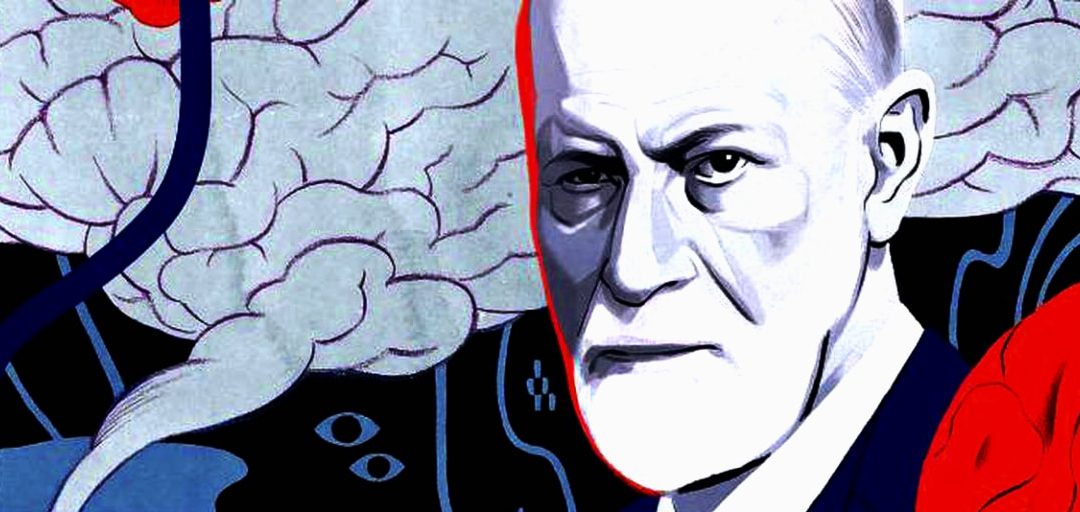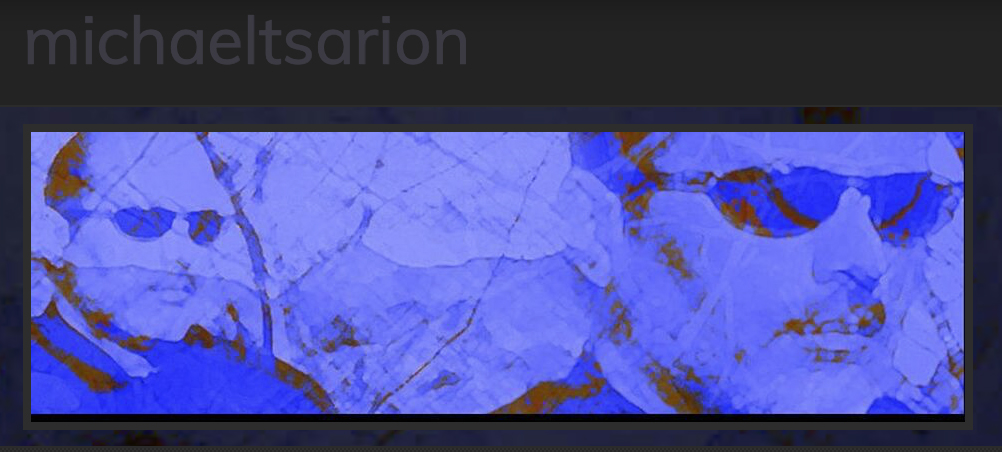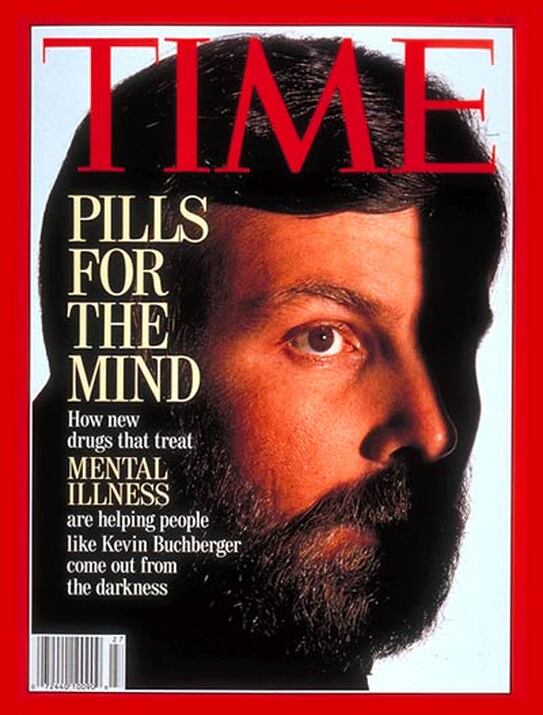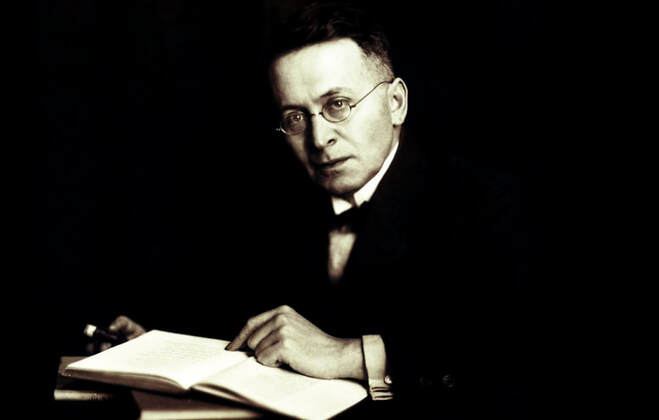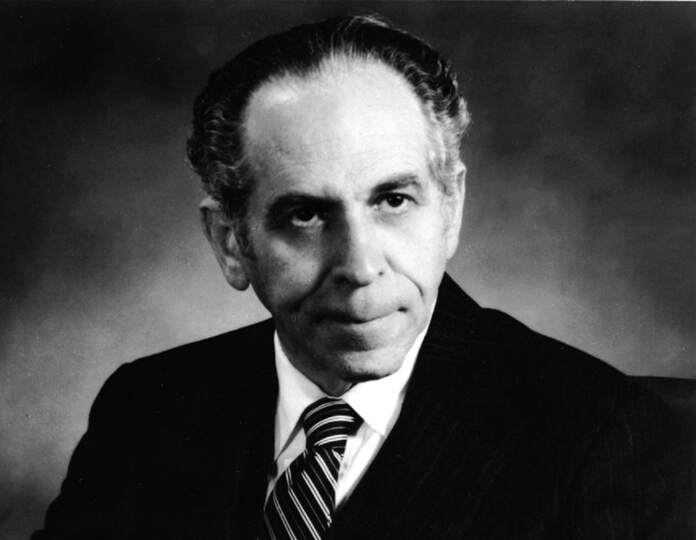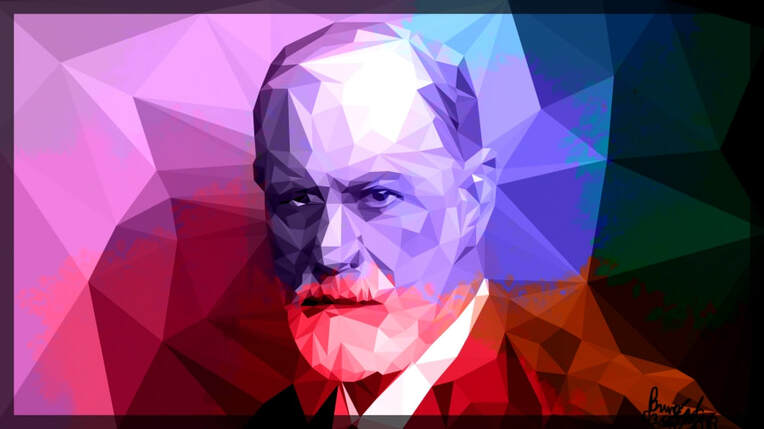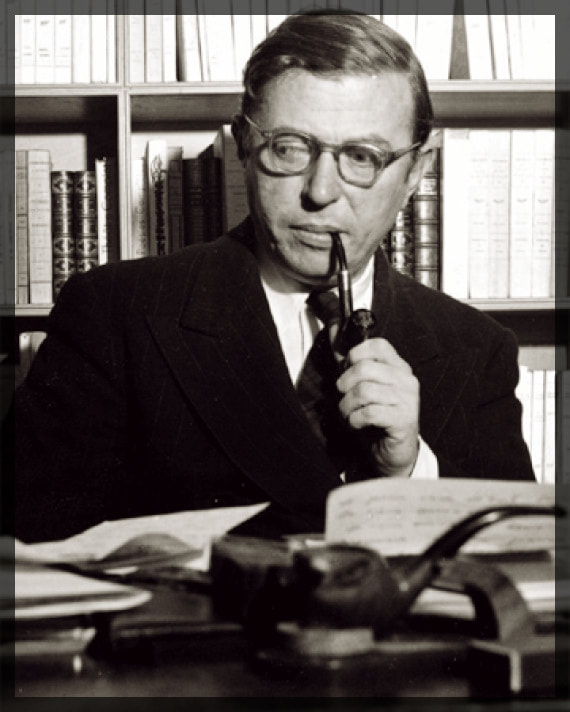THE ANGRY PHILOSOPHER
Know then thyself, presume not God to scan, the proper study of mankind is man – Alexander Pope
Sigmund Freud’s theories about the psyche had a devastating effect on the science and philosophy of his time. Both were based on Rationalism, a philosophy which championed the merits of the intellect and conscious mind.
Rationalists believe that every mystery confronting humanity will one day be demystified and solved. No matter what puzzles nature throws at us, it is only a matter of time before human beings triumph and lay bare the workings of the cosmos. Get emotion, passion and woolly-thinking out of the way and forge ahead. Mystery be damned!
In other words, as far as most Rationalists are concerned, there are no ultimate mysteries. With patience and scientific diligence, rational man is eventually bound to unearth the ultimate truths about reality. It’s the ultimate destiny of man, the rational animal.
Man himself as the possessor of all things, as the unquestionable conqueror and master of all nature as if he had created it himself. But this sense of possession and power is only too often combined with a remarkable lack of responsibility and realization of the right to life of other creatures. Man’s domination is too often a prostitution of nature rather than its legitimate use – Seyyed Hossein Nasr
In the nineteenth and early twentieth centuries – when Rationalism ruled the world – most Europeans eagerly put their faith in science, pragmatism and materialist philosophy. They also put their faith firmly in the mighty institutions of learning.
However, the whole house of cards came tumbling down after Freud’s analysis of the “unconscious,” proved that man was by no means in total charge of his thoughts and behavior. It was the ultimate conclusion of Kant’s skepticism. What is it to know the answers to every metaphysical problem plaguing us, and still know next to nothing about the being asking questions and seeking answers? Who is this being? What does the thinker know about his own mind and thinking process? Obviously, said Kant, we know very little about ourselves.
Freud agreed and, with the earlier sage in mind, set himself the great task of looking deeply into the mind of the being who questions reality. After all, Hegel may have been correct when he emphasized that all human questioning ultimately serves a single purpose – Self-knowledge.
At bottom there is but one subject of study…the mind. All other subjects may be reduced to that; all other studies bring us back to this study – Henry Amiel
But, given that Self-understanding is the key to all acts of thinking, what does man know about himself? Why did it take until Kant’s time for man to position himself at the center of interest? Why is the study of man and his remarkable faculties so recent?
And, as Kant asked, is it even possible for a person to attain complete Self-transparency? According to Freud, and the psychoanalysts, the answer is firmly and irrevocably – No!
It was a declaration that shook the world to its foundations.
Despite the shock value, however, it was not a new discovery by any means. Previous sages had remarked on the limitlessness of being. The soul of man is too deep to be wholly encompassed and fathomed, said Heraclitus, years before Plato. German mystics, idealists and romantics echoed the same refrain. Freud provisionally agreed, but argued that a measure of peace is brought to the soul by emptying the so-called “unconscious” of its dark unsavory content. Bringing what is hidden to light reduces neurotic tendencies, thereby allowing consciousness to be governed more by reason than wild passion.
For Freud self-knowledge means that man becomes conscious of what is unconscious; this is a most difficult process, because it encounters the energy of resistance by which the unconscious is defended against the attempt to make it conscious – Erich Fromm
Hardline Rationalists weren’t convinced. Their response to Freud’s ambivalence was simply why? What gets in the way of full conscious lucidity? Freud answered in words reminiscent of Nietzsche. The mind itself gets in the way. Consciousness is the most complex thing there is, and a great deal of its workings lie in darkness. Even if one absurdly insists on reducing mind to brain-function, the same fact remains.
Attempts to pull back or penetrate the great veil between conscious and unconscious hemispheres only lead to further entanglement, paradox and confusion. Sad to say, reason isn’t much help. What a mind wishes to keep hidden from itself, remains hidden. Very perplexing to be sure.
Freud could not altogether abandon the tenets of Rationalism. Hence, many of the criticisms against him are not as straightforward as they appear. It cannot be denied that he often conceded the difficulties, and was always ready to address the limitations of his practice.
Unhappy with one technique, he wasn’t adverse to changing his approach entirely. He went from conversation to free-association to dream-analysis, in an attempt to arrive at a satisfactory understanding about what the deeper recesses of one’s mind want to communiate through the ego’s defences. At the heart of Freud’s practique is the desire to overcome man’s regrettable penchant for self-deception.
In subsequent writings, Freud conceded that analyzing the content of a person’s subconscious is largely a matter of interpretation. The process is complicated by the fact that a censor is constantly at work within consciousness, inhibiting direct access to deeper recesses of the psyche.
It was apparent to Freud that most people are content to carry on living without knowing too much about themselves. They are quite content to exist in a state of evasion and self-deception. In many cases, clients sought out a therapist not to help them unearth the truth about themselves, but to help them prevent that truth arising to disturb the flow of their mediocre lives.
For such a client, therapy is deemed successful if it readjusts them to soceity’s standards and wins them the approval of others. As far as Freud and his followers were concerned, the intention of most clients is to exhange legitimate suffering for neurotic misery. When the therapist attempts to draw their attention to this foible, and counsels a reversal, the client cancels further sessions and never returns.
Okay, so you’re advising me to be “authentic”…I’ll have to think about it and get back to you…
Freudianism revealed how the vast majority of people recoil from expressions of legitimate emotion. By avoiding legitimate despair they silence the voice of the conscience, becomng wooden pseudo-selves in the process. It wouldn’t be much of a problem if the predicament was confined to one or two neurotics. However, as Erich Fromm, Karen Horney, Arno Gruen, Viktor Frankl, and others point out, the whole of society has become neurotic in just this way and for the same reasons. Existentialists say if you wish to know what it means to live “inauthentically,” just take a good look at people in urbanized settings. It’s all there in plain view.
On a practical level, when we inquire into what prevents a healthy move toward psychic wholeness, we find that problems start from the very first session.
For example, when a client recalls a dream, and when a therapist attempts to interpret it, they do so in a wide-awake state. They have no way of telling if a recollection of a dream-sequence or image is not a matter of egregious distortion. Indeed, we have no reason to trust the conscious mind’s recollection of dream content. Impressions from the unconscious come to us by way of the ego, which has the power to censor content as well as to drastically tweak content allegedly remembered.
Messages conveyed by the conscious mind may not necessarily be identical to those actually emanating from one’s deeper being. After all, asked Freud, why are dream-images scrambled? Why are they not delivered in a clear, straightforward manner? What part of our mind is resistant to information transmitted by another part, and what does this internal discord means for every other facet of our life? What does it portend for society as a whole?
Self-knowledge in Freud’s sense is not an intellectual process alone…It is not only knowledge by the brain, but also knowledge by the heart – Erich Fromm
This is the reason, thought Freud, that analysts are required. They act on behalf of the dreamer’s true Self. At least that is the presumption.
Another pesky factor compromising open discourse between hemispheres involves what Freud called “repression.” Regardless of the strength and prowess of one’s intellect, there exists content below the limen of consciousness of which we have no awareness. This remains the case regardless of one’s IQ and force of will. Prince or pauper, genius or madman, the puzzling fact remains.
Freud’s descriptions of the unconscious confirm that even the most rational no-nonsense person is plagued with subconscious factors inaccessable to the will. For Freudians, man is certainly at war with himself, and in no position to think of himself as capable of being, intellectually or morally, a force for good in the world. It’s just more self-deceptiveness.
Many questions arise as to the whole premise and veracity of Psychotherapy. Its greatest critics asked how therapy can be effective if the client is little more than a duplicitous malingerer? Early on in his medical career, Freud saw for himself that most mental patients incarcerated in sanitoriums actually wanted to be there, and had few serious complaints. However, even if a client genuinely requires help, how can a therapist really know what makes him tick? Is therapy a kind of drive-in “car-wash” for the psyche? Worse! Is it simply a reprise of the age-old “priest-sinner” dynamic endemic to dogmatic religion? Is the consulting room just a modern-day confessional?
Man is the creature who must constantly overcome himself in order to live fully – Friedrich Nietzsche
It was soon realized that talk about nonconscious urges, instincts, drives, compulsions, complexes and syndromes, etc, compromised the central precepts of science, technology and Rationalist philosophy. What was to be done about it?
Not much, it seems.
Rationalists were forced to concede defeat. If parts of the psyche had the power to contradict, thwart and overthrow the reason and intellect, then no villain could be wholly held accountable for his immoral actions, no matter how diabolical. In fact, a raving psychopathic murderer could, instead of blaming the “Devil,” could now simply blame his unconscious mind, saying that it had a will of its own. According to the Freudians, he’d be quite correct.
Such a premise was, of course, strenuously resisted. Freudianism was deemed by many to be transgressive and iconoclastic.
.
People often say that this or that person has not yet found himself. But the self is not something one finds; it is something one creates – Thomas Szasz
Existentialist philosopher Jean-Paul Sartre was particularly worried about Freudianism. Certainly, he thought, it left a convenient escape-hatch open for immoral types who could, with scientific sanction, deny responsibility for any and all moral infractions and crimes.
A thief isn’t necessarily guilty of any actual crime because he suffers from kleptomania, brought on by childhood deprivation. A sexual-sadist is motivated by repressed fantasies that just come to him, against his will. What’s the problem?
Ted Bundy was addicted to pornography, so he’s not really guilty of mass-murder. He tried to resist the urges rising up from the dark recesses of his subconscious, but his will was too weak. Poor man! What’s the point of punishing him? Although motivated by internal urges, he is the victim.
Jeffrey Dahmer murdered, dismembered, cooked and ate innocent unsuspecting humans because his basic need for company and nurturement hadn’t been sufficiently satisfied by early caregivers. Wasn’t he victimized long before he broke the law?
Likewise, the demagogue who massacres millions in the name of God or a political cause, surely means well. He acts according to the instruction of an “inner voice” he takes for that of God. He suffers from megalomania or a messiah-complex. We’re bound to blame the complex, not the man.
French Existentialist Jean-Paul Sartre (1905-1980), was deeply troubled by the precepts of Psychoanalysis. Was Freud responding to a basic need in man that he somehow overlooked? Do not most people wish for someone to absolve them of blame, and isn’t that what religion brought to humanity? Is the psychoanalyst the replacement for the black-robed priest? The warnings went out from Sartre, Otto Rank, Karl Kraus and Thomas Szasz. Is man destined to never stand on his own feet without stabilizers? Nietzsche demanded that man find out what he is without the supporting pillars of science and religion. However, what if man doesn’t like what he finds? What if he replaces old supports with new ones? Is self-deception the order of the day, the very essence of ego-consciousness?
Man is fully responsible for his nature and his choices – Jean-Paul Sartre
Sartre trembled at this new development, saying that because of Freud’s discoveries, man now had the perfect way out. Humanity’s all-important moral-compass had just been uninstalled. Any sense of responsibility is rendered null and void. Man himself, as a conscious moral entity need not stand trial for anything. Morality was merely a social custom or convention, not based in anything rational and fundamental.
This breakdown in moral sensibility allows moderns to shift blame to a cocktail of unseen drives, urges, instincts and compulsions. Irrational man is able to blame anything and everything except himself. It’s so wonderful, and just what the world needs.
Sartre believed that Freudianism and psychoanalysis in general allowed an immoral person to live in “bad faith” with himself. Forget infractions and crimes against others, and guilt arising from it. Now an immoral person can act immorally without feeling guilt of any kind. Some therapist says he’s not to blame for his evil thoughts and actions, it is his “parents” who must be singled out and accused. After all, how could a barely conscious infant be held responsible for conditions at home? Fault can hardly be attributed to him.
Moral philosophers like Sartre came to fear for the future. What happens if society buys into the new view? What happens to the justice-system – to courts, juries, sentencing and punishment? More importantly, what happens to human contrition and conscience?
It means that instead of being handed over to prison-services, a criminal is handed over to psychiatrists whose answer to everything is medication. In their minds you are not criminal or deviant, you’re sick in the head. You have a broken mind in the same way as you might have a broken arm. You have a disease of the mind in the same way as you can have brain-disease. You can, therefore, be mended. A few pills later and you’ll be as good as new. Calming tranquilizers and customized pharmaceuticals are what you need, not jail-time and punishment.
Marx said that religion was the opiate of the people. In the United States today, opiates are the religion of the people – Thomas Szasz
The deviant personality type need fear no longer. Guilt is a matter for lawyers, judges and courts, not conscience. Everyone and everything stands accused except the perpetrator. Society has decided that they are the victim. Of course, as Sartre emphasized, those offering forgiveness may be in need of it themselves. The society that easily forgives evil may be evil itself, and in need of absolution for its own crimes. In short, only immoral people are eager to forgive others. They secretly hope to receive it in return. In any case, Big Pharma has taken charge. Diseases of the mind are treated like any other malignancy. Immorality is now a matter of biological corruption. As Thomas Szasz, R. D. Laing and others warned, soon the medicated people – suffering from and addicted to artificial happiness – will lose all sense of Being. Unable to stand as individuals without science and religion, they choose Happy-Pills to keep going. The inauthentic life must be decorated, at all costs, and my shame and guilt for living inauthentically must be anaesthesized, come what may. Critics and criminologists warn that a great many heinous crimes are committed by people addicted to doctor prescribed anti-depressants and anti-psychotic drugs. They’re met with deaf ears. Why not? Given the present state of decay, it’s likely that the would-be critic of society is dependent on medication himself, or will be in the near future. Critical mass is just around the corner. By hook or by crook, the System wins. (Here for more…)
Everything has been figured out, except how to live – Jean-Paul Sartre
Of course, now that the nightmare is upon us, we know the Existentialists were correct to worry about the future. Perhaps this is the reason why some Existentialist thinkers tended to look fondly on Christian values. But even for atheists like Sartre, there simply must be a moral-compass if people and their civilizations are to survive and sanely progress. Take it away, and men living in Bad Faith will soon be found in every walk of life. We’ll be at the mercy of a completely inauthentic society.
What good is a justice-system if humanity as a whole loses the internal voice of conscience? Beinghood is lost, as one robotically lives as the “perfect” citizen. What passes for morality and authenticity is merely cheap trendy emulation. Every value and virtue is a matter of parody, every individual merely a pseudo- or counterfeit-self? What a farce.
According to Sartre, if a broken soul in this condition suffers from anxiety, then anxiety is a damn good thing. Tell us more about it. Such a creature should find himself plagued with “disorders,” because he is existentially disordered. Good thing there’s still a conscience calling from deep down below, making a mockery of the mockery. Thanks be that it prevents fools settling into a cosy life of lies. Bring on the despair, said Kierkegaard, Sartre, Camus, and other Existentialists. It’s the only thing standing in the way of a person’s total committment to falsity and immersion in the mass. Angst is actually one’s savior. Cherish it, bow before it, and never call it bad names again.
How come you don’t recognize your greatest friend and comforter when it comes to visit? As far as the great Existentialists were concerned, your despair and anxiety are the only counselors and therapists you need. (Here for more…)
In the broken state, man certainly finds it difficult to survive, function and progress. Okay, along comes psychology and psychiatry with a bag of tricks – the endless theories, surveys, tests, pie-charts and prescriptions. Men in white-coats chase the demons away and quell your alarming bouts of anxiety. What a relief. Dial-a-shrink and the Prozac smile signals you’re safely back in a superlit, air-conditioned bubble of artificial happiness.
For Existentialists normalization to an inauthentic lifestyle is not to be seen as a good thing. It’s perverse and unsustainable. The thing to do – to secure man as a moral being – is to make sure he preserves his internal moral-compass. Authentic man should need no external authority to tell right from wrong. Sure, in early years we benefit from some steadying action, in the form of social standards and advice from wise elders, but on no account should this be the extent of our moral sensibility. Morality must not be allowed to degenerate into mere parody and social convention.
Freud warned that without external prohibitions man is sure to return to a bestial state. Sartre feared in a different way. Might it not be society that bestializes its citizens? Might not society demand conformity and docility? Might it not rob man of innate sensibilities?
For Sartre, the loss of an internal moral-compass must be addressed. Society must not facilitate man’s capacity for self-deception or condone his evasion of personal responsibility. To become fully “human,” each person must remain free to make as many mistakes as they are capable of. A person must be radically free to reap the consequences of his actions, and must learn to think and act without external impositions from churches, schools, hospitals, think-tanks, media, experts and other people.
Once the voice of conscience wanes, for any reason, there can be no substance to human existence. There can be no higher thought and aspiration. If I cannot judge what is right and wrong within myself, I soon cannot tell what is right and wrong in every other area of life. I find myself morally-neutral, endorsing each and every atrocity committed by government. And if the average state-official is, existentially-speaking, an immoral being without conscience and empathy, how can good come of it?
If I allow myself to follow the dictates of such a creature, how am I doing good? Must I not fight tooth and nail, and with every fibre of my being, against such a rotten status quo? Conscience is not just a word in a dictionary. It’s an act.
Author and critic Karl Kraus (1874-1936), was an early critic of Psychoanalysis.
…man must create his own essence. It is in throwing himself into the world, suffering there, struggling there, that he gradually defines himself – Jean-Paul Sartre
For Sartre, this is where we locate true irrationality and Bad Faith. It is not, therefore, as Freud held that man is primitive in his beginnings. Rather, it’s a case of man becoming existentially primitive and irrational courtesy of his morally-bankrupt culture.
Society becomes malignant without murmur of opposition. It cannot fathom what it does to itself. The Crowd has no sense of responsibility. That’s just for individuals, and they’re an extinct species.
Nowadays, immoral people are able to blame parents, peers, schools and culture for their moral turpitude. They can even blame their own minds. It’s not under their conscious control, so how can they be held responsible for evil thoughts and actions?
If I were given a pill, those evil tendencies might be removed forever. So get on with it. Rather than sentencing me to jail, for something I couldn’t help, get your asses into gear and manufacture a “cure.” Save me from myself, from my evil instincts and urges. That will make the world safe, and I’ll be all the happier for it. I want to be adjusted, normalized and politically-correct. I want to be like everybody else. I don’t want to be unmutal.
As the Existentialists predicted, society listened and quickly answered the call of those living in Bad Faith. As Thomas Szasz warned, we are now witnessing the billion-dollar funded “medicalization of everyday life.”
Hungarian libertarian psychologist Thomas Szasz (1920-2012). The author of dozens of books, his masterworks include The Myth of Mental Illness, The Manufacture of Madness and The Medicalization of Everyday Life. Inspired by Karl Kraus, he was a vehement critic of Freud and Psychoanalysis. However, he also reminded his readers of those who used the precepts of psychoanalysis to dodge personal responsibility. Freud can be faulted, Szasz contended, but what of those seeking him out, the never-ending queue of malingerers desperate to find an authority-figure to absolve them of their “sins?” Are they not the world’s foremost problem?
The man who can no longer tell that evil is evil, finds it increasingly difficult to tell that good is good – Ayn Rand
As Sartre foresaw, we now inhabit a culture in which no one is to blame for any evil act. Nothing is anyone’s fault. As Freud said, no one is in complete control over their thoughts and actions. Right! Is that the perfect escape-mechanism for the immoral man? He’s not born rational and isn’t part of any truly rational society. That’s purely skin-deep and illusory.
It might even be that controlling myself – my bestial instincts – is the irrational thing. After all, as Freud states, these antisocial instincts are natural. They’re part of my original disposition. The continuing repression of natural feelings confirms that I’m a being in conflict. Society, then, is charged with the role of “helping” me in the fight against myself. Society must make me a “better person.” I’m no expert.
As we see, society’s leaders have taken up the gauntlet, and very much intend turning us into better citizens.
To give Freud his due, he was concerned about the manner in which man’s true nature is repressed. In his final book on the subject of psychology, Civilization and its Discontents, he mused about society’s pathogenic role. However, he was loath to go as far as Sartre and the Existentialists. The latter wondered about what was bound to be lost to man by acculturation. By heeding society’s standards, might not a man lose touch with his conscience? Might he not function as the perfect citizen, and by doing so become less of a “being?”
Might such a bloodless creature, given a position of power, not react with great dislike to an authentic man, should he encounter one? Might he not detest his very presence and strive to rid the world of him? What kind of society do we inherit ruled over by tyrants of this kind? What if such machine-men establish all-powerful institutions which continue to purge society of authentic types? Did not Plato, Socrates, Seneca, Circero, and a dozen other sages of antiquity warn us about this?
The problem certainly worried Freud. However, it haunted Sartre. What good is the culture emptied of its great men and women, who find themselves unable to express themselves? What good is the society that stabilizes itself by making sure dissenters and critics are censored and condemned?
What if a corrupt conformist society decides that every dissenter is to be labeled irrational, antisocial and bestial?
Worse! What if, in some bizarre fashion-statement, with society’s blessing, the most inauthentic type recasts himself as an authentic type? What if in this state of self-delusion he sets himself up as judge and jury over one and all?
Under the hands of Freud the Age of Reason collapsed. Nevertheless, Freud and psychoanalysis came under a blistering attack from Rank, Sartre, Kraus, Szasz, and a few other thinkers. However, at the end of the day, Freud was, like many other thinkers, intent on explaining the greatest mystery of all – consciousness. Can he be accused of maliciously presenting man as an essentially antisocial “bestial” creature? If man is compulsively self-deceptive, is it Freud’s fault? Are Sartre’s criticisms worthy, well-founded and productive or somewhat nigggerdly and frivilous? Freud would simply have yawned, diagnosing Sartre, or any such critic of Psychoanalysis, as an outer-directed type whose ego-identity depends on a lack of introspection. French philosophers and school teachers can be extroverts, adverse to looking within in a genuine way. Therapy acts like a mirror, but does not force you to look into it. Not everyone likes what they see. Hence their hostility toward the mirror.
Among Freud’s most important discoveries is the realization that the underlying cause of psychological disturbance is our fear of self-knowledge: information which when consciously recognized induces us to feel weak, incompetent, ashamed, and unworthy – leading to self-hatred – Carl Goldberg
Which returns us to a central concern for Sartre – the problem of self-deception.
Let’s go back to Freud and his devastating effect on Rationalism, and play devil’s advocate for a minuite.
What if the entire Freudian perspective on man’s origins is based on Freud’s own acts of self-deception? Is psychoanalysis really based on anything true?
A critic might say that if I want, I can say absolutely anything about consciousness. This is because I am a conscious being speaking about myself. Although it’s a marvellous oddity that consciousness is self-reflexive, and able to pass judgment on itself, there’s no reason why any statement made by mind about mind is to be taken as factual and true.
We did not live in the ancient past, and know nothing about what consciousness was like back then. What we think we know is based mostly on surmise and conjecture. Therefore, we are not to imagine that statements made about the nature of primitive man are true. Nor are we to imagine that any statement about mind, as we find it today, is true. We might be dealing with purely temporary circumstances and judgments, or with complete falsity. Fortunately, Freud knew this all too well.
Of course, given that this is the case, it’s not just Freud who comes under the hammer. Every thinker and expert is hoisted by the same petard. Every theory and viewpoint is similarly compromised.
Sartre made it simple. Almost everything humans think and do is based in self-deception. The strange thing is that Freud wholeheartedly believed the same thing.
Wasn’t it predictable that our penchant for self-deception would lead us to accept the doctrines of a new breed of experts in political and medical fields? How could anything we see today come about from any other source except self-deception? But how many of us care to investigate this crucial phenomenon? We’re too busy doubting Freud’s motives.
Even if a thinker’s critiques of previous traditions and certainties are essentially correct, we’re not out of the woods. As Freud knew, all growth involves a process. The psyche is no exception. One starts at a point of ignorance or innocence and moves toward greater maturity and understanding. But regress to a state of primitivism is also possible. Regrettably, sometimes in history it is the rule.
Exposing a previous fallacy – like Rationalism – doesn’t automatically mean we’re any further ahead in terms of the mysteries of consciousness. All we’ve really discovered is another instance of self-deception. It’s a process that can go on forever.
Indeed, it is a process that has continued through time. We’re always convincing ourselves that “progress” is being made when all we’re doing is finally fessing-up to previous acts of self-deception.
As said, it took millennia for man to position himself, as a thinking being, at the center of attention. If progress has been made, in terms of understanding the mysteries of consciousness, it’s been slow. Every new insight and development has been resisted and doubted.
Until now man has been up against Nature. From now he will be up against his own nature – Dennis Gabor
No doubt inspired by Fyodor Dostoevsky and Franz Kafka, Sartre expressed his philosophy in fictional form. His novel Nausea (1938) is better known and more widely read than his academic work. Fellow Existentialists, who also favored fictional renderings, were Gabriel Marcel, Albert Camus and Simone de Beauvoir. Camus’ The Stranger is a popular novel featuring Existentialist themes.
…the vast majority of people in our culture are well adjusted because they have given up the battle for independence – Erich Fromm
Sartre’s form of Existentialism involves confronting man with his endless acts of Bad Faith. Only when we are able to spot our acts of self-deception – and understand the reasons for them – can we claim to operate as authentic beings.
Is this why, in today’s necrophilous culture, one is forbidden to judge, criticize and call out evil? Is this the cause of Political-Correctness? Has the man of Bad Faith assumed control of civilization?
Sartre saw this type – the hater and defiler of freedom – as the truly “bestial” being who loathes the company of authentic men. Under his intolerant reign the independent free-thinker must not be allowed to survive. He who confronts his fellows with their acts of self-deception must be condemned and ostracized. He must be labeled an Outsider and banished to the madhouse or the nether, where he can do no harm.
. . .


